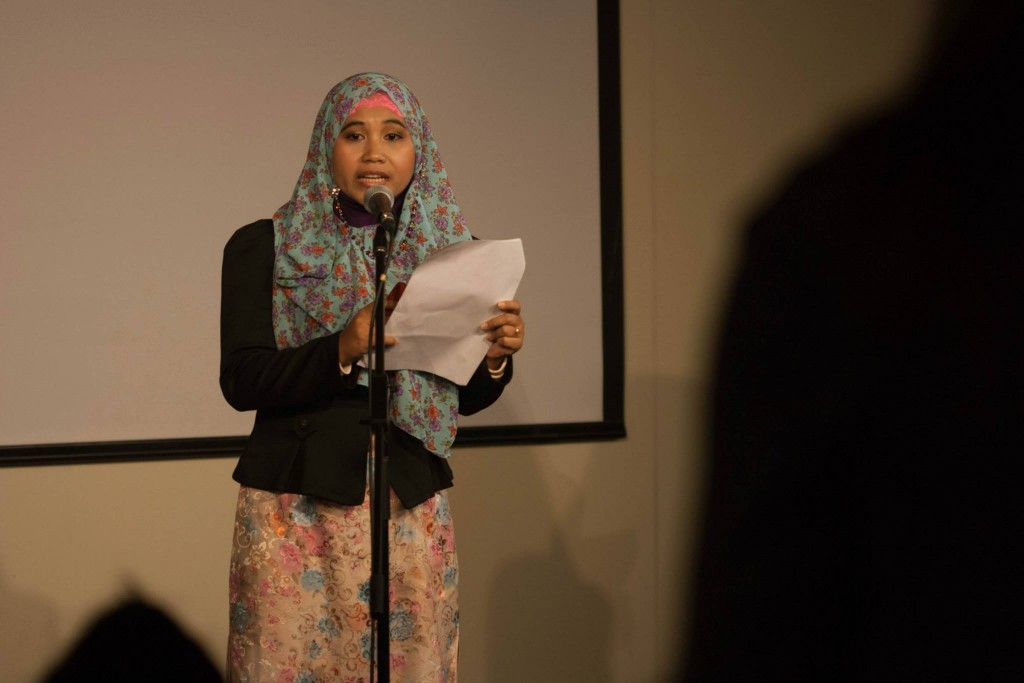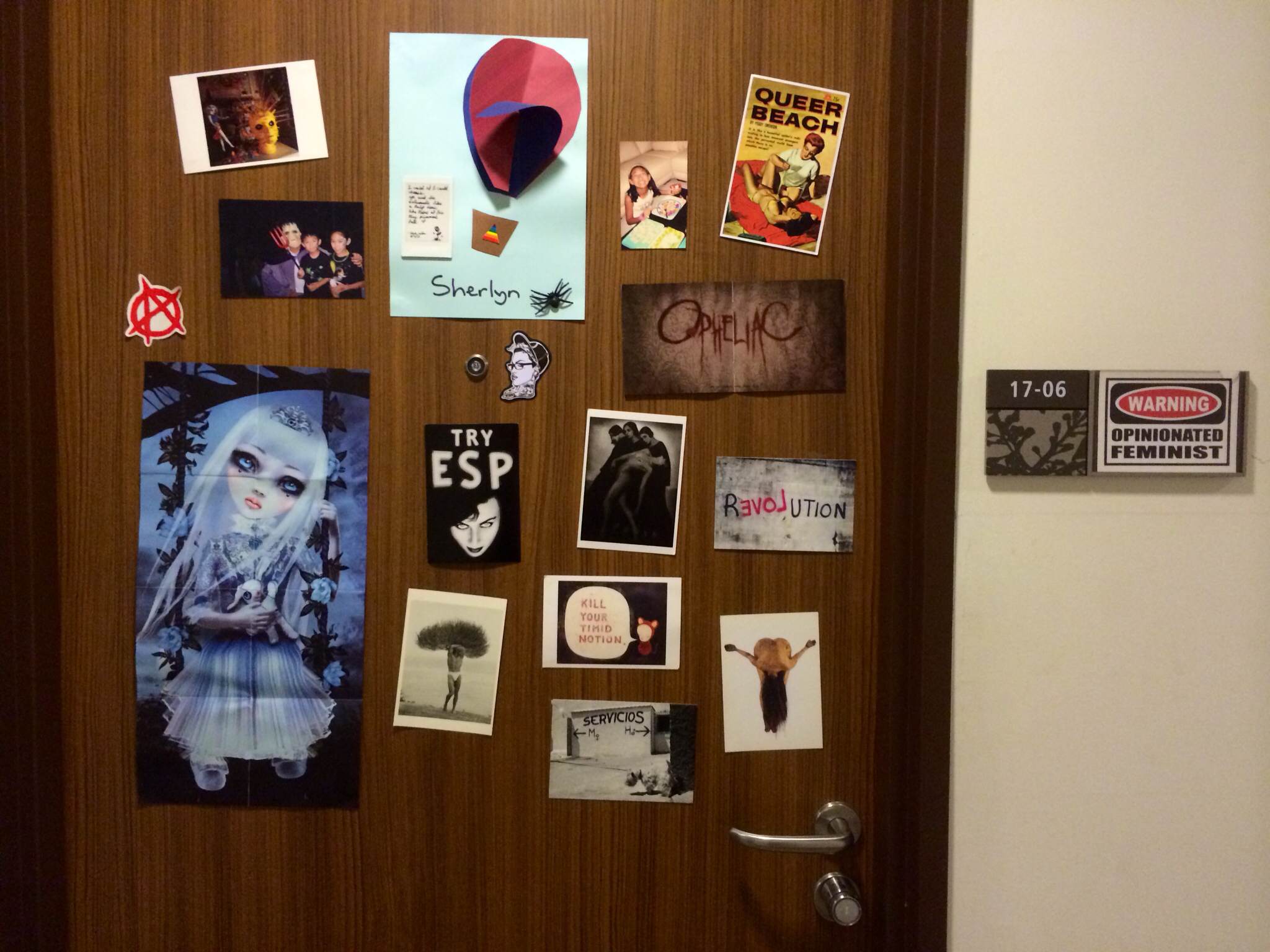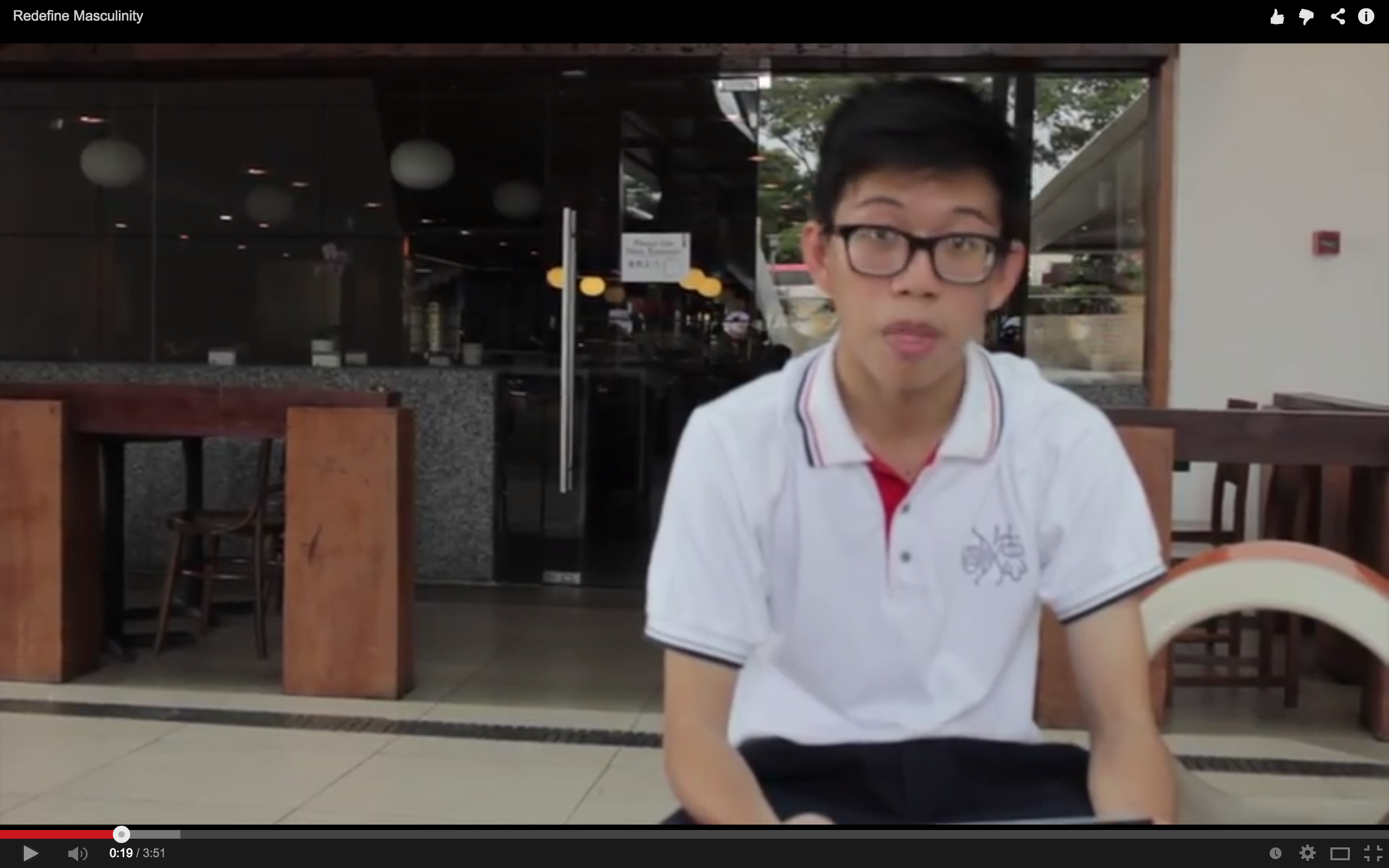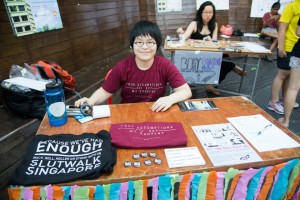by Kelvin Ng Jiawin, Change Maker
“My death needs to be counted in the number of transgender people who commit suicide this year. I want someone to look at that number and say “that’s f**ked up” and fix it. Fix society. Please.”
 The last lines of Leelah Alcorn’s suicide note highlight what’s most heart-wrenching about her suicide: that it is not an isolated incident. Leelah Alcorn is one name in the long list of transgender individuals who have faced violence and hostility due to their gender identity, including Islan Nettles, Tiffany Edwards, Zoraida Reyes and Kandy Hall.
The last lines of Leelah Alcorn’s suicide note highlight what’s most heart-wrenching about her suicide: that it is not an isolated incident. Leelah Alcorn is one name in the long list of transgender individuals who have faced violence and hostility due to their gender identity, including Islan Nettles, Tiffany Edwards, Zoraida Reyes and Kandy Hall.
Transphobia is a unique form of gender-based violence that remains painfully under-discussed in mainstream discourse, but as recent events have shown, this is a necessary conversation to have – something needs to be done about the discrimination of trans individuals.
“Huh? Transphobia? What’s that?”
Let’s get some definitions out of the way, first.
- Assigned sex: The sex you were assigned at birth and put on your birth certificate.
- Gender identity: The gender you identify with; may correspond to or differ from your assigned sex! I can be assigned male at birth, and identify as a female.
For most people, gender identity has never been an issue. Most tend to simply take their gender for granted as they feel comfortable identifying with the gender they were assigned at birth. Individuals whose gender identity match their assigned sex are known as cisgender.
However, it is important not to universalize this experience: for many, their assigned sex simply does not reflect their identity as a human being. Trans individuals can identify as male, female or outside of the gender binary (i.e. neither male nor female, but as genderqueer, agender, non-binary*, etc.).
Simplistically speaking, transphobia arises from firmly conforming to concepts of sex and gender. Most of mainstream society tends to associate gender identity, assigned sex, gender expression† (and to an extent, sexual orientation) as synonymous concepts; this results in gender roles and stereotypes that affects cisgender, or ‘cis’, individuals as well (cis women, for example, are expected to conform to the feminine ideals of subservience and silence).
While society today, by and large, are more tolerant of cis individuals who don’t conform to a certain gender role, the discrepancy between a trans individual’s gender identity and assigned sex can be met with hostility due to ignorance. In reality, however, there is no one way to be human: just because something is more common doesn’t mean it is any more normal or natural, and it is perfectly normal to feel alienated in one’s assigned sex.
 Transphobia is also reinforced by the underrepresentation of trans people. Rarely do we see trans people being adequately represented in governance, civil society or the media. This creates ignorance: people tend to form stereotypes of trans people from whatever little they are exposed to – my first exposure to the word “transgender” came in the form of a disparaging insult toward how another person looked. Trans identities are relegated to punchlines about vacations in Bangkok and deemed perverted or unnatural. It becomes easy to demonize entire groups of people you don’t know much about, but the fact remains that trans people do exist and they don’t just come in the form of shimmying drag queens (they can, and there’s nothing wrong with that!) – they lead human lives as do all of us.
Transphobia is also reinforced by the underrepresentation of trans people. Rarely do we see trans people being adequately represented in governance, civil society or the media. This creates ignorance: people tend to form stereotypes of trans people from whatever little they are exposed to – my first exposure to the word “transgender” came in the form of a disparaging insult toward how another person looked. Trans identities are relegated to punchlines about vacations in Bangkok and deemed perverted or unnatural. It becomes easy to demonize entire groups of people you don’t know much about, but the fact remains that trans people do exist and they don’t just come in the form of shimmying drag queens (they can, and there’s nothing wrong with that!) – they lead human lives as do all of us.
“But why should I care? It’s not like I’m actively persecuting them!”
Leelah Alcorn’s case has illustrated two important things: first, violence does not merely come in the form of in physical abuse or assault, but also (and perhaps more insidiously) in a disregard and disrespect toward a person’s gender identity; second, this violence can be inflicted by anyone – people like you and I, and in Leelah’s case, her very own mother. Hence, it is important to to be mindful of the effect our words and actions may have on trans individuals.
As a cis male myself, I find it essential to recognize the privilege I possess by virtue of my gender identity – while I try to do all within my means to be inclusive toward trans individuals, there is no denying that I myself benefit from a system that actively marginalizes them. Other than the misgendering and exclusion Leelah faced, trans individuals also face harassment, hate speech and violence in schools, at work, in public spaces or even at home. Employment discrimination continues to be rampant as ever against trans individuals, and trans people are still routinely excluded from gender-exclusive spaces as well as basic medical care. In Singapore, trans identities are not legally recognized until after transition, which can be an unaffordable luxury; this deprives trans people of the right to identify as who they really are.
“Transphobia sucks. What can I do as a cis ally?”
While it may be hard, and inaccessible for many, to push for legislative change on an individual basis, cis individuals can play a part as an ally by being more mindful to create a safer place for trans individuals.
The first step in doing so, undoubtedly, will be to respect and recognize a trans person’s gender identity and the terminology they choose. Use their preferred pronouns when addressing them and avoid misgendering them by using their name or gender pronoun assigned at birth. It is also important to realize that their narrative is no one else’s to craft but their own, and to respect their right to do so.
We also have to be respectful about boundaries; be fully aware about confidentiality and exposing a fellow trans person, unwittingly or otherwise, as this may create backlash especially in intolerant settings. (Not to mention the fact that invading someone else’s privacy is a completely asinine thing to do.) Avoid asking about a trans person’s “real name”, or genitalia, or sex life – not only can it be a trigger for unhappy incidences, you wouldn’t ask a cis person the same questions either!
Lastly, actively challenge transphobia – both internalized or otherwise. Growing up cisgender, it can be easy to disregard the existence of trans people. The fact, however, is that this willful ignorance does nothing for trans people – it doesn’t shift the status of their rights nor change the harassment they face on a daily basis. Challenge transphobia by calling out anti-transgender jokes and remarks in public spaces, by supporting gender-neutral language and facilities, and most importantly, by listening to trans individuals. It doesn’t matter if we’ve been problematic in the past – what matters is that we’ve learned from those mistakes and are consciously working towards creating a safer world for our fellow trans friends.
* Genderqueer individuals don’t identify as either male or female, agender individuals don’t identify with any gender at all, while non-binary individuals identify as a gender other than male or female.
† The manner you express your identity, via mannerisms, fashion or behaviour. May or may not correspond to the former two categories; cis males who perform in drag adopt a gender expression considered feminine.
 About the Author: Kelvin Ng is a debater by training and part-time poet. His biggest accomplishment is remembering all the lyrics to Beyonce’s ***Flawless — both the original one and the Nicki Minaj remix — so that must mean something.
About the Author: Kelvin Ng is a debater by training and part-time poet. His biggest accomplishment is remembering all the lyrics to Beyonce’s ***Flawless — both the original one and the Nicki Minaj remix — so that must mean something.
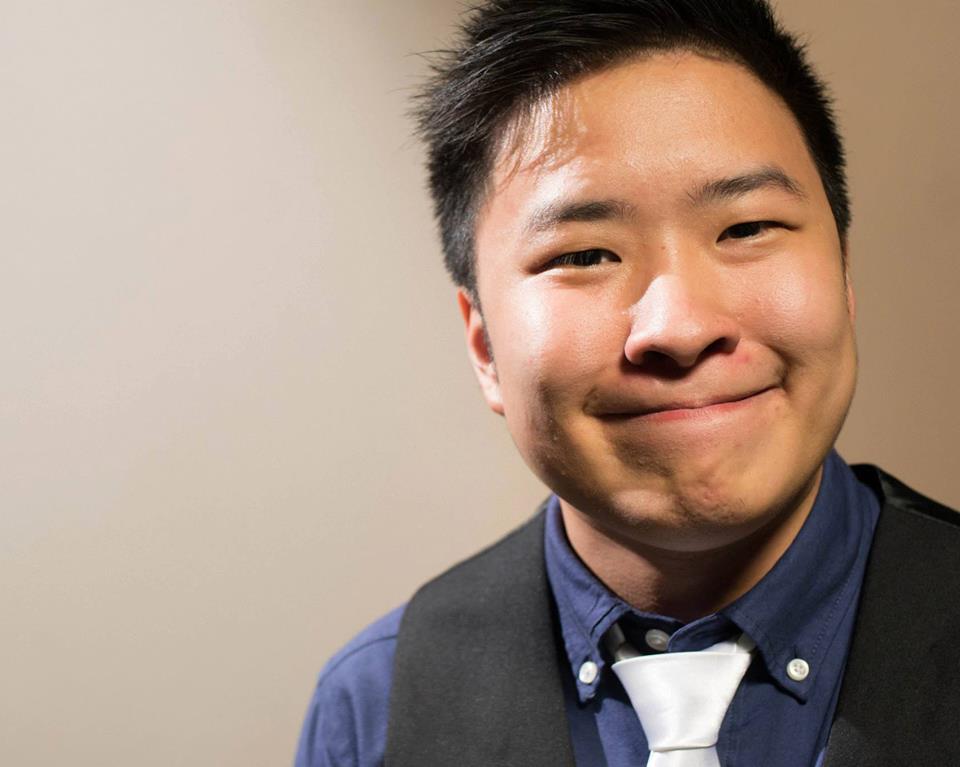


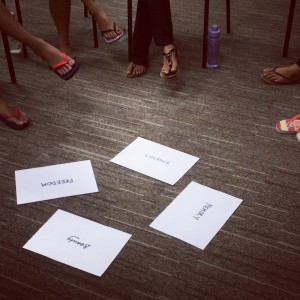
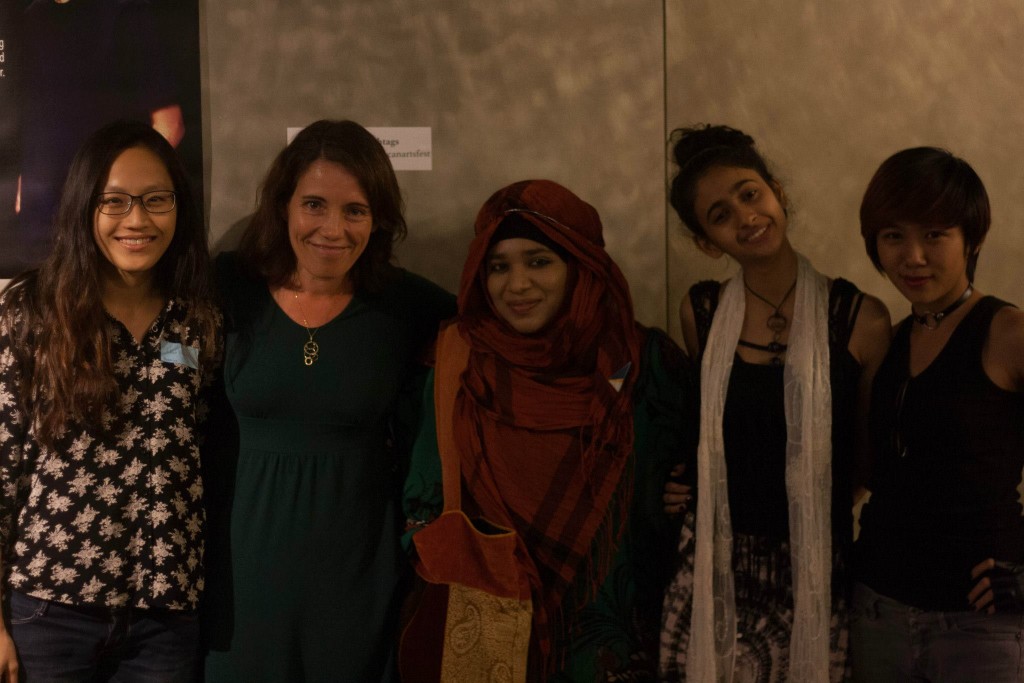 The facilitators of my workshop, Nurul and Anne, were nothing short of stellar. They were simultaneously professional and personal throughout the four sessions, and succeeded in fostering an atmosphere comfortable enough for everyone to share their honest opinions. I particularly liked the ground rules democratically established on the first day, initiated by Anne; it provided a useful framework for our later discourse and ensured that no boundaries were transgressed.
The facilitators of my workshop, Nurul and Anne, were nothing short of stellar. They were simultaneously professional and personal throughout the four sessions, and succeeded in fostering an atmosphere comfortable enough for everyone to share their honest opinions. I particularly liked the ground rules democratically established on the first day, initiated by Anne; it provided a useful framework for our later discourse and ensured that no boundaries were transgressed.